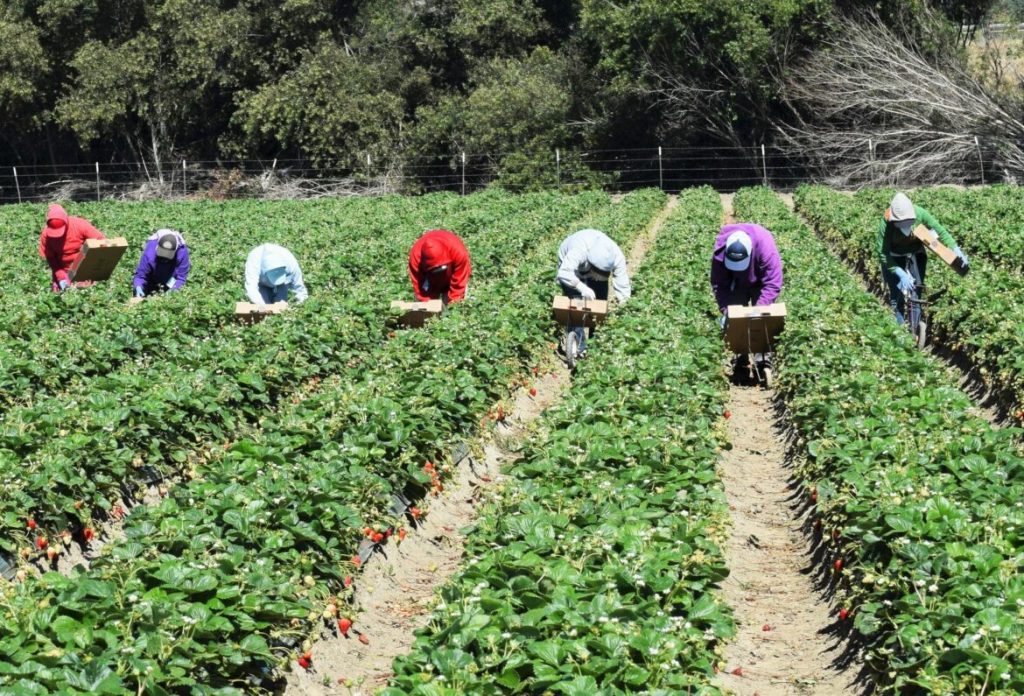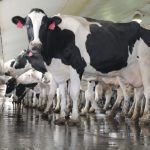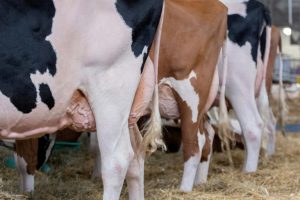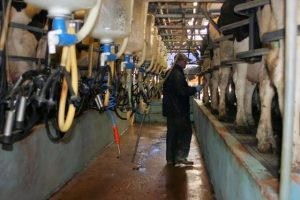
Donald Trump’s election as president in 2016 brought a wave of controversial policy proposals and promises. Perhaps among the most polarizing of these were his vows to ramp up deportations of undocumented immigrants. As his second presidency gets underway, the implications of these promises are poised to significantly impact the food system, potentially disrupting agricultural production, increasing food prices, and negatively affecting the livelihoods of millions of American food system workers.
Immigrant Labor: The Backbone of American Agriculture
The food system in America relies heavily on immigrant labor. Roughly 50 to 70 percent of farmworkers across the nation are undocumented, working in various food sectors including production, crop harvesting, meatpacking, dairy farming, and food processing. These laborers often take on physically demanding and low-paying jobs that many American-born workers are unwilling to do, making them essential to a functioning food system.
Trump’s stance on immigration—coupled with his plans to enforce mass deportations—threatens to dramatically reduce the number of workers available across the food system. In his recent campaign, Trump vowed to crack down on illegal immigration and increase deportations, which, if carried out, threatens to decimate the agricultural workforce. For an industry already struggling with labor shortages, the loss of hundreds of thousands of workers could have catastrophic consequences for food production.
Immediate Impact on Food Production
The most immediate and visible effect of mass deportations would likely be felt in production. Food production is reliant on Immigrant labor at nearly every stage, from planting and harvesting to packaging and distribution. Without immigrant workers, farmers would struggle to maintain current production levels.
Labor-intensive crops that need to be harvested at certain times or risk going to waste, such as fruits, vegetables, and nuts, are particularly at risk without a reliable workforce. In states like California, Florida, and Texas that grow large volumes of produce, a loss of workers could lead to unharvested fields, lower crop yields, and a potential decrease in the overall food supply. This could then lead to an increase in food imports, driving up costs for both farmers and consumers.
Meatpacking plants and poultry processing facilities are also heavily dependent on immigrant labor. Mass deportations in this sector could lead to bottlenecks in processing livestock and poultry, further limiting the availability of meat and dairy products. Processing plants may need to scale back or shut down operations entirely, leading to job losses not only in agriculture but in entire communities reliant on the food industry.
Rising Food Prices and Inflation
With fewer workers in the fields and processing plants, the cost of producing food will inevitably increase. Farmers may face higher labor costs, especially if they are forced to compete for a shrinking pool of domestic workers or pay higher wages to attract legal immigrants who are willing to work in agriculture. As production costs rise, they will likely be passed on to consumers in the form of higher food prices.
This increase in the price of food could be particularly difficult for lower-income families who already struggle to make ends meet. For instance, fresh fruits and vegetables, which are often labor-intensive to grow and harvest, could see significant price hikes. Similarly, meat prices could rise if the deportation of immigrant workers leads to a slowdown in processing facilities.
Given the scale of the agricultural industry in America and the widespread use of immigrant labor, the broader economy could also feel the ripple effects of rising food costs. A surge in food prices could contribute to inflation, stressing household budgets across the nation, and particularly hurting families in areas with high food insecurity.
Potential for Increased Automation
One potential outcome of Trump’s mass deportations could be an accelerated drive toward automation in the agriculture and food processing sectors. Many farmers and agricultural companies are investing in new technologies, including automated harvesters, drone-assisted crop management, and robotics, to reduce their dependence on human labor. However, these technologies come with their challenges, including high upfront costs and the need for specialized knowledge to implement and maintain them.
In addition, an increased dependence on technology could also result in job losses for American workers who would otherwise be employed in agricultural fields or processing plants. Additionally, automation may not be able to replace every job, especially those requiring skills in crop management, animal husbandry, or specialized food processing tasks. In short, even as automation offers a partial solution, it would not fully offset the loss of labor from mass deportations.
Broader Economic and Social Consequences
The mass deportation of undocumented workers would also have a far-reaching impact on rural communities across the United States. In farming regions where agriculture is a major employer, deporting immigrant workers could destabilize the economy, reduce tax revenues, and increase pressure on public services. As farms and food processing plants shut down or scale back, widespread economic hardship in these areas could lead to job losses and potential population decline.
Additionally, as food prices rise and job insecurity increases, people may look to their government for solutions. And if Trump’s policies are seen as exacerbating food insecurity or economic distress, protests, civil unrest, as well as even broader debates about the morality and efficacy of his immigration policies, could follow.
The Call for Immigration Reform
For many in the agricultural sector, the solution is not mass deportations but comprehensive immigration reform. Many farm organizations and labor unions have lobbied for a path to citizenship or legal work status for undocumented workers who are already in the United States and contribute to the functioning of the agricultural industry. Proposals such as expanding the H-2A visa program, which provides temporary legal immigration status to foreign agricultural workers, have gained traction as potential solutions to the looming labor shortage. However, these programs are often criticized for being cumbersome, excessively bureaucratic, and insufficient to meet the full needs of the industry.
Without reform, however, the food system in America could be left in a precarious situation, with labor shortages leading to reduced production, higher prices, and greater food insecurity for vulnerable populations.
An Uncertain Future for the Food System
Ultimately, Trump’s policies could cause a destabilized food supply, increased economic inequality, and greater food insecurity for many Americans. To avoid these outcomes, it will be critical for lawmakers to take swift action to address immigration reform in a way that meets the needs of both the agricultural industry and the broader economy. Until that happens, the future of the food system remains uncertain, with millions of American families potentially feeling the brunt of the president’s immigration policies at the grocery store.
You can now read the most important #news on #eDairyNews #Whatsapp channels!!!
🇺🇸 eDairy News INGLÊS: https://whatsapp.com/channel/0029VaKsjzGDTkJyIN6hcP1K
























